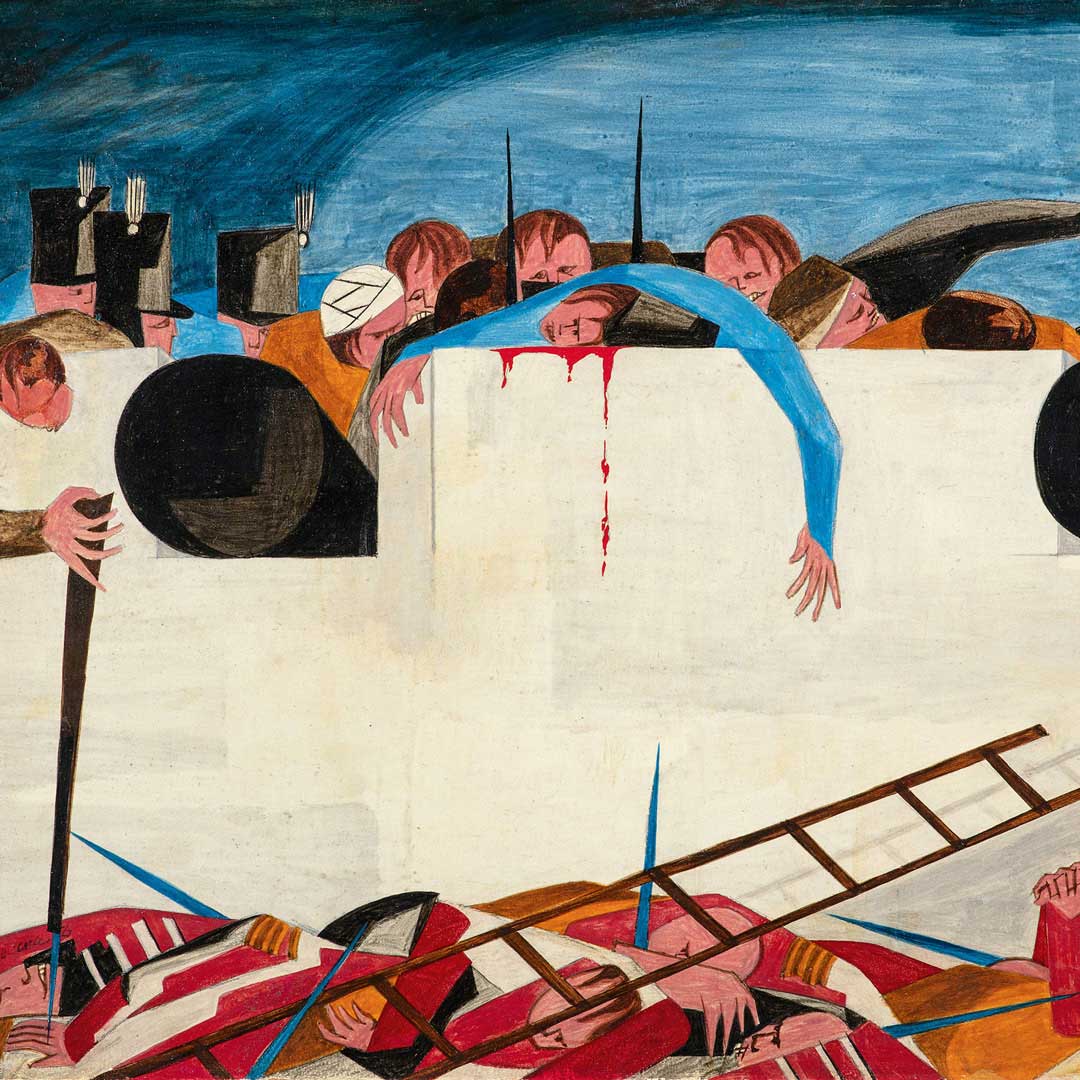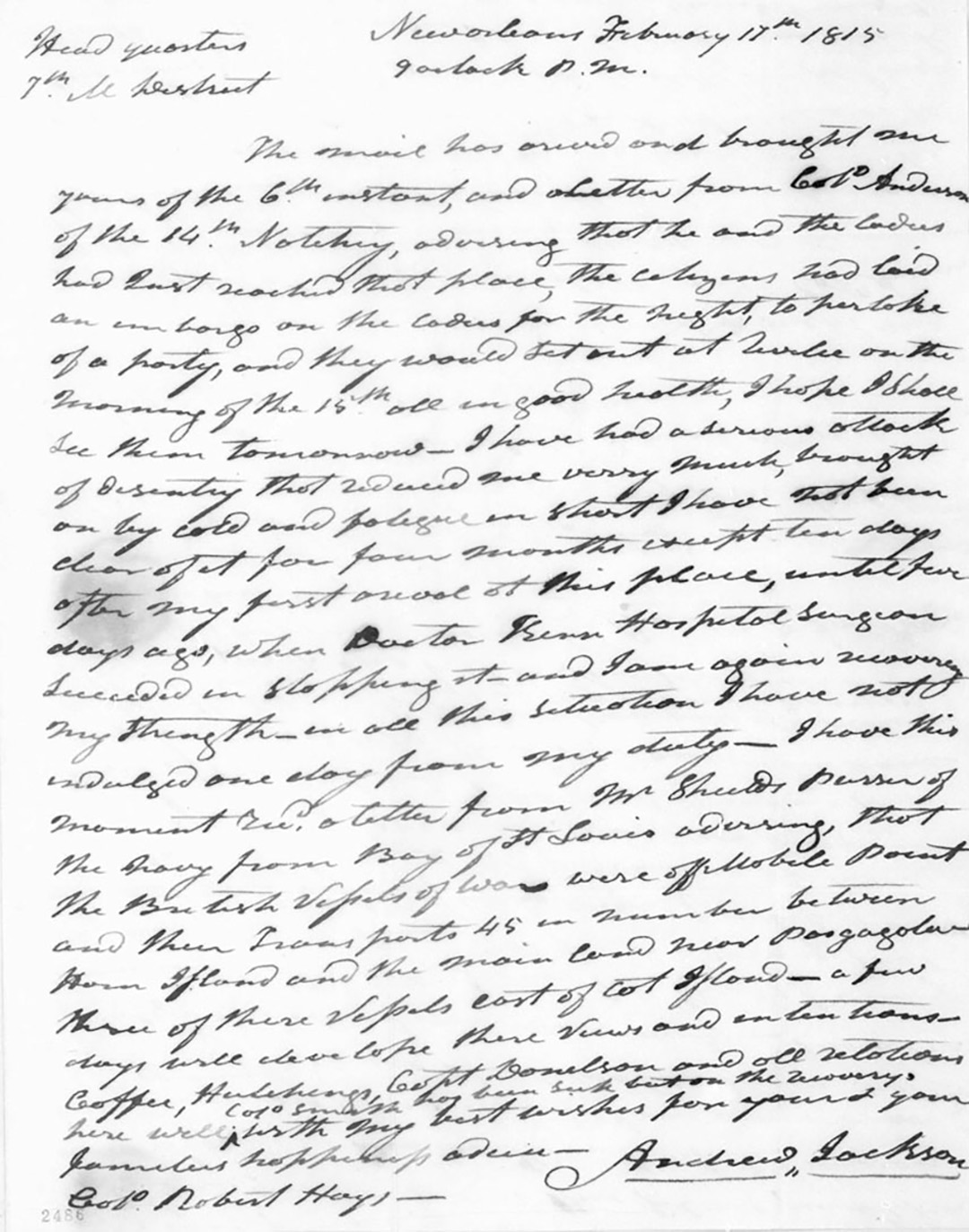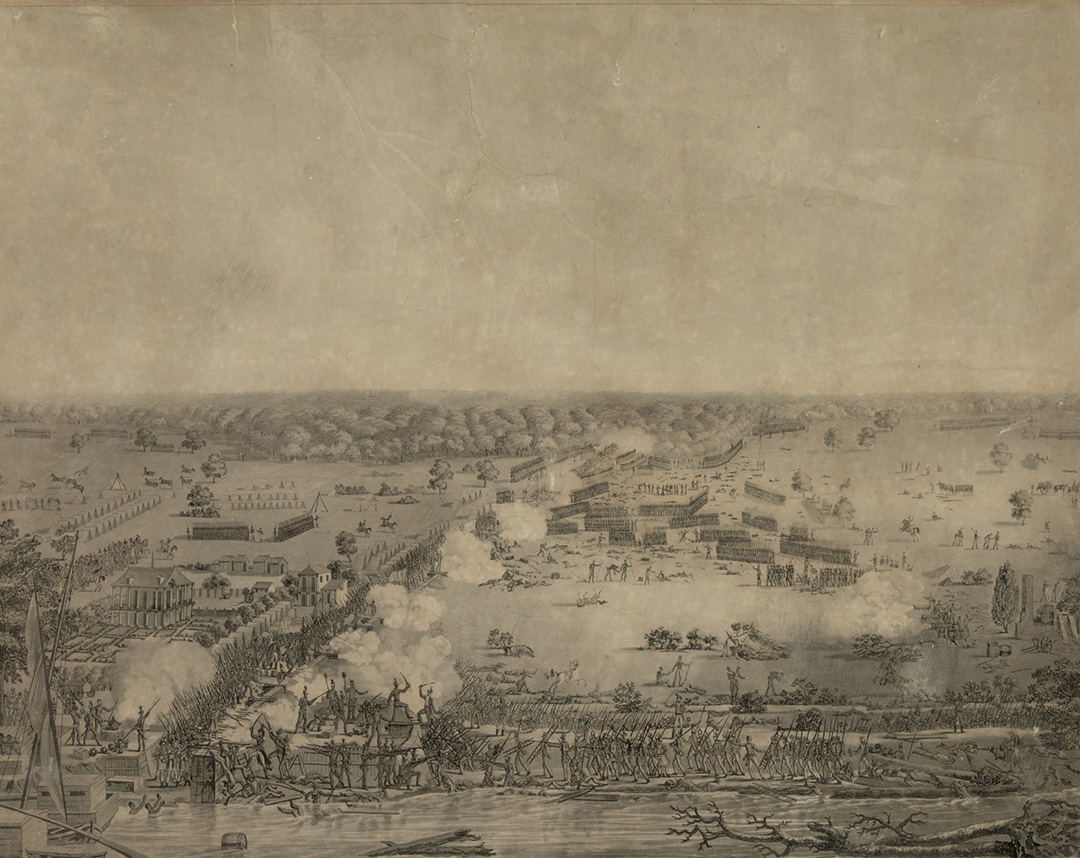
Panel 25
I cannot speak sufficiently in praise of the firmness and deliberation with which my whole line received their approach . . . —Andrew Jackson, New Orleans, 1815, Panel 25, 1956, Inscription unassessed, Jacob Lawrence, from Struggle: From the History of the American People, 1954–56, Collection of Harvey and Harvey-Ann Ross, © 2019 The Jacob and Gwendolyn Knight Lawrence Foundation, Seattle / Artists Rights Society (ARS), New York.

